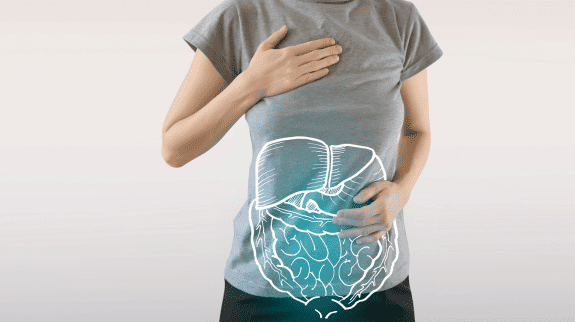The carnivore diet is a high-fat, moderate-protein, and low-carbohydrate diet that involves consuming only animal products. This diet is based on the idea that humans evolved to eat meat and that plant-based foods are not necessary for optimal health.
While there are potential benefits to this diet, there are also some initial symptoms that can occur when starting the carnivore diet. Some common initial symptoms of the carnivore diet include digestive changes such as constipation, diarrhea, and bloating.
This is due to the fact that the body needs time to adjust to the new diet and the lack of fiber. Other symptoms may include fatigue, headaches, and irritability.
It is important to note that these symptoms are temporary and usually subside after a few days to a few weeks.
KEY TAKEAWAYS
- The carnivore diet involves consuming only animal products and eliminating all plant-based foods.
- Starting the carnivore diet can lead to some initial symptoms such as digestive changes, fatigue, headaches, and irritability.
- Symptoms are temporary and usually subside after a few days to a few weeks.
Understanding the Carnivore Diet
The carnivore diet is a type of diet that involves consuming only animal products such as meat, dairy, and eggs. This diet has gained popularity in recent years, with some people claiming that it can lead to weight loss, improved mental clarity, and other health benefits.
However, when starting the carnivore diet, it is important to be aware of the potential symptoms that may occur. These symptoms are often referred to as the “carnivore flu” and can include:
- Headaches
- Fatigue
- Brain fog
- Nausea
- Digestive issues
These symptoms are thought to be caused by the body’s transition from using glucose for energy to using ketones, which are produced when the body breaks down fat for fuel. It can take several days or even weeks for the body to fully adapt to this new way of eating, which can lead to these symptoms.
Initial Symptoms of the Carnivore Diet
When starting a carnivore diet, some people may experience initial symptoms as their body adjusts to the new way of eating. These symptoms typically occur during the first week or two of the diet and can vary in severity and duration.
One common symptom is diarrhea, which can be caused by the sudden increase in fat intake or the lack of fiber in the diet. This symptom usually resolves within a few days as the body adjusts to the new diet.
Another symptom that some people experience is a lack of energy or fatigue. This can be due to the body’s transition from burning carbohydrates to burning fat for energy. It may take a few weeks for the body to fully adapt to using fat as its primary fuel source.
Headaches are also a possible symptom during the initial stages of a carnivore diet. This can be caused by a variety of factors, such as dehydration or a lack of electrolytes. Ensuring adequate hydration and electrolyte intake can help alleviate this symptom.
Some people may also experience nausea when starting a carnivore diet. This can be due to the increase in fat intake or the lack of variety in the diet. Gradually increasing fat intake and incorporating a variety of meats can help alleviate this symptom.
It’s important to note that not everyone will experience these symptoms when starting a carnivore diet. If any symptoms persist or worsen, it’s recommended to consult with a healthcare professional.
Digestive Changes and Challenges
Starting a carnivore diet can lead to significant digestive changes and challenges. While some people may experience a smooth transition, others may face some difficulties. Here are some of the common digestive changes and challenges one may encounter when starting a carnivore diet:
Constipation
One of the most common digestive issues that people experience when starting a carnivore diet is constipation. This is because the carnivore diet is low in fiber, which is essential for promoting regular bowel movements. Without enough fiber, the stool becomes hard and difficult to pass.
To combat constipation, individuals may need to increase their water intake, add more salt to their diet, and consider taking a magnesium supplement. Additionally, they may need to give their body some time to adjust to the new diet.
Bile Production
Bile is a crucial digestive fluid that helps break down fats in the small intestine. When transitioning to a carnivore diet, the body may need to produce more bile to digest the increased amount of fat in the diet.
Some people may experience discomfort or nausea due to the increased bile production. However, this is usually temporary and should subside as the body adjusts to the new diet.
Bowel Movements
On a carnivore diet, bowel movements may become less frequent but more substantial. This is because the body is efficiently utilizing all the nutrients in the food, leaving less waste to be eliminated.
While some people may find this change in bowel movements uncomfortable, it is not necessarily a cause for concern. However, if an individual experiences prolonged constipation or diarrhea, they should seek medical attention.
Digestive Enzymes
The carnivore diet is high in protein, which requires the body to produce more digestive enzymes to break down the food properly. Some people may experience discomfort or bloating due to the increased production of digestive enzymes.
To alleviate these symptoms, individuals may need to eat smaller, more frequent meals and consider taking a digestive enzyme supplement.

Nutritional Shifts and Cravings
Starting a carnivore diet can lead to nutritional shifts and cravings. These changes are often a result of the body adapting to the new diet and can vary from person to person. However, there are some common symptoms that many people experience when they switch to a carnivore diet.
Processed Foods

One of the main reasons people experience cravings when starting a carnivore diet is due to the elimination of processed foods. Processed foods are often high in sugar and carbohydrates, which can lead to addiction-like symptoms. As a result, when people switch to a carnivore diet, they may experience cravings for these foods.
However, it’s important to note that these cravings will typically subside over time. As the body adjusts to the new diet, the cravings for processed foods will become less intense. Additionally, the elimination of processed foods can lead to improved health outcomes, including weight loss and reduced inflammation.
Also read: Best carnivore diet snacks
Overall, while nutritional shifts and cravings can be a challenging aspect of starting a carnivore diet, they are a normal part of the transition process. By focusing on nutrient-dense, whole foods and allowing the body time to adjust, individuals can successfully navigate these changes and experience the many benefits of a carnivore diet.
Hydration and Electrolyte Balance

Starting a carnivore diet can lead to changes in hydration and electrolyte balance due to the elimination of carbohydrates, which can cause the body to excrete more water and electrolytes.
One way to ensure adequate hydration is to drink plenty of water throughout the day. It is recommended to drink at least eight glasses of water per day, or more if you are physically active or live in a hot climate. Additionally, it is important to pay attention to thirst cues and drink water when feeling thirsty.
Electrolytes, such as sodium and magnesium, are also important for maintaining proper hydration and electrolyte balance. A lack of electrolytes can lead to symptoms such as fatigue, muscle cramps, and headaches. One way to ensure adequate electrolyte intake is to consume salt and other electrolyte-rich foods, such as bone broth or organ meats.
Supplements can also be used to maintain electrolyte balance, but it is important to be cautious and consult with a healthcare professional before starting any supplement regimen.
Also read: Best supplements for the carnivore diet 2023
In summary, maintaining proper hydration and electrolyte balance is important when starting a carnivore diet. Drinking plenty of water, consuming electrolyte-rich foods, and monitoring electrolyte levels can help prevent dehydration and other complications.
Impact on Physical Health
Starting a carnivore diet can have both positive and negative impacts on physical health. It is important to note that everyone’s body is different, and therefore, the effects of the diet may vary from person to person.
Weight Loss
One of the most common reasons people start a carnivore diet is to lose weight. The high protein content in meat can help keep you feeling full for longer, which can lead to a reduction in calorie intake and ultimately, weight loss.
Protein
Meat is an excellent source of protein, which is essential for building and repairing muscles, as well as maintaining a healthy immune system. However, it is important to note that too much protein can be harmful to the body, particularly for those with pre-existing kidney issues.
Inflammation
Studies have shown that a carnivore diet may help reduce inflammation in the body. Inflammation is a natural response to injury or infection, but chronic inflammation can lead to a range of health problems, including heart disease and cancer.
Stress and Fatigue
Some people report feeling more energized and less stressed after starting a carnivore diet, while others report feeling fatigued and irritable. It is important to listen to your body and make adjustments to the diet as needed.
Weight Gain
While a carnivore diet can lead to weight loss for some, it can also lead to weight gain for others. This is because the high fat content in meat can be calorie-dense, and consuming too many calories can lead to weight gain.
Cholesterol
There is some evidence to suggest that a carnivore diet may increase cholesterol levels, particularly LDL cholesterol (the “bad” cholesterol). However, more research is needed to fully understand the long-term effects of the diet on cholesterol levels.
Effects on Mental Health
When starting a carnivore diet, some individuals may experience changes in their mental health. While there is limited research on the topic, some anecdotal evidence suggests that the diet may have both positive and negative effects on mental health.
Brain Fog

Some individuals report experiencing brain fog when starting a carnivore diet. Brain fog is a term used to describe a feeling of mental confusion or lack of mental clarity. While the exact cause of brain fog is not well understood, some individuals report that it may be related to changes in diet or nutrient deficiencies.
Irritability
Another potential side effect of starting a carnivore diet is irritability. This may be related to changes in blood sugar levels or nutrient deficiencies. It is important to note that irritability may also be a symptom of other underlying health conditions, so it is important to speak with a healthcare provider if this symptom persists.
Anxiety
Some individuals may experience anxiety when starting a carnivore diet. This may be related to changes in gut bacteria or nutrient deficiencies. It is important to note that anxiety may also be a symptom of other underlying health conditions, so it is important to speak with a healthcare provider if this symptom persists.
Positive Effects
While some individuals may experience negative effects on their mental health when starting a carnivore diet, others report positive effects. Some individuals report feeling more focused and clear-headed on the diet. Additionally, some individuals report improvements in mood and a reduction in symptoms of depression.
Carnivore Diet Side Effects and How to Mitigate Them
Starting a carnivore diet can have side effects that may be unpleasant for some people. However, most of these side effects are temporary and can be mitigated by following some simple strategies.
Side Effects
The most common side effects of starting a carnivore diet are headaches, fatigue, and digestive issues. These side effects are usually caused by the body’s adjustment to a new diet that is low in carbohydrates and high in protein and fat.
Glucose and Blood Sugar Levels
A carnivore diet can cause a decrease in glucose and blood sugar levels. This can lead to symptoms such as dizziness, weakness, and confusion. To mitigate these symptoms, it is recommended to consume enough electrolytes, such as sodium, potassium, and magnesium.
Sleep
Some people may experience changes in their sleep patterns when starting a carnivore diet. This may be due to the body’s adjustment to a new diet or increased energy levels. To improve sleep quality, it is recommended to avoid caffeine and alcohol, and to establish a regular sleep routine.
Gallbladder
A carnivore diet can put stress on the gallbladder, which may lead to the formation of gallstones. To mitigate this risk, it is recommended to consume enough healthy fats, such as olive oil, avocado, and nuts.
How to Mitigate Side Effects
To mitigate the side effects of starting a carnivore diet, it is recommended to follow these strategies:
- Gradually reduce carbohydrate intake over a period of several weeks.
- Consume enough electrolytes, such as sodium, potassium, and magnesium.
- Consume healthy fats, such as olive oil, coconut oil and ghee
- Stay hydrated by drinking enough water.
- Establish a regular sleep routine.
- Exercise regularly to improve energy levels and reduce stress.
In conclusion, starting a carnivore diet can have side effects, but most of these side effects are temporary and can be mitigated by following some simple strategies. It is important to listen to your body and make adjustments as needed.
Adaptation Period and Long-Term Implications
Research on the long-term implications of a carnivore diet is limited, but some studies suggest that it may have benefits for certain chronic diseases. For example, a study published in the World Journal of Diabetes found that a high-fat, low-carbohydrate diet (similar to a carnivore diet) may improve glucose control and insulin sensitivity in people with type 2 diabetes.
The microbiome, which refers to the collection of microorganisms that live in the gut, may also be affected by a carnivore diet. Some studies suggest that a high-protein, low-carbohydrate diet may alter the composition of the microbiome, potentially leading to changes in metabolism and disease risk.
It is essential to note that a carnivore diet may not be suitable for everyone, and some people may experience negative long-term effects. For example, a high intake of red meat has been linked to an increased risk of certain diseases, such as colorectal cancer.
Research on the long-term implications of a carnivore diet is limited, but some studies suggest potential benefits for certain chronic diseases. However, it is essential to consider individual factors such as microbiome composition and disease risk before starting a carnivore diet.
Frequently Asked Questions
What can you eat on the carnivore diet?
On the carnivore diet, you can eat meat, fish, eggs, and certain dairy products like butter and cheese. It is important to avoid carbohydrates, fruits, vegetables, and grains. The carnivore diet is a restrictive diet that eliminates most food groups.
Also read: What is the Carnivore Diet
How long will I have diarrhea on carnivore diet?
Diarrhea is a common side effect when starting the carnivore diet. It usually lasts for a few days to a week. The body needs time to adjust to the new diet, and diarrhea can be a result of this adjustment. It is important to stay hydrated and to consult a doctor if diarrhea persists for more than a week.
Carnivore diet poop chart?
There is no official carnivore diet poop chart. However, it is normal for bowel movements to change when starting a new diet. Some people experience constipation, while others experience diarrhea. It is important to pay attention to any changes in bowel movements and to consult a doctor if there are any concerns.
Carnivore diet side effects?
The carnivore diet can have side effects, especially when starting the diet. These side effects can include diarrhea, constipation, fatigue, headaches, and nausea. It is important to stay hydrated and to consult a doctor if any side effects persist for more than a week.
Carnivore diet nausea?
Nausea is a common side effect when starting the carnivore diet. Many people have reported experiencing nausea when starting the diet. It is important to stay hydrated and to consult a doctor if nausea persists for more than a week.
Carnivore diet headache?
Headaches are a common side effect when starting the carnivore diet. Many people have reported experiencing headaches when starting the diet. It is important to stay hydrated and to consult a doctor if headaches persist for more than a week.

